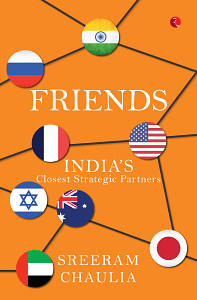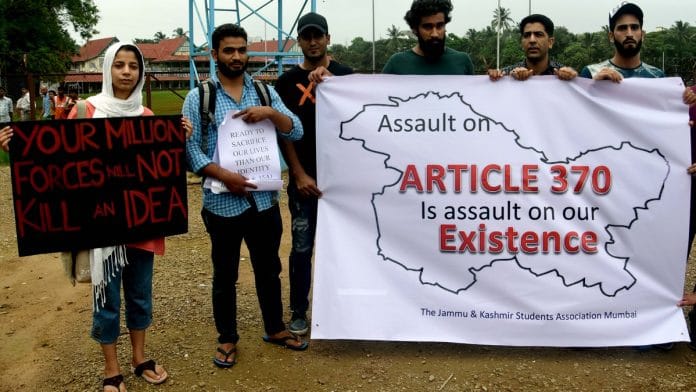In August 2019, the Narendra Modi government ushered in a landmark structural reform to fortify India’s national security. It announced a radical reorganization of the Jammu and Kashmir (J&K) region by revoking its seven-decade-long separate autonomous status under Article 370 of the Indian Constitution, and by converting it into a centrally administered territory. For decades, autonomy in J&K had become a slippery slope for separatism, jihadist extremism, and alienation of Kashmiri Muslims from the rest of India.
The special status had been a gift for neighbouring Pakistan to exploit and fan alienation of Kashmiri Muslims against India. By capitalizing on Article 370, which allowed J&K to have a half-hearted existence in India, Islamabad sponsored wave after wave of cross-border terrorism, with the goal of wresting Kashmir from India and annexing it to Pakistan.
The abrogation of Article 370 shut the door to separatism, and to Pakistan-sponsored secessionist designs, making it a game-changing decision that altered the nature and contours of politics not only in J&K but across South Asia. It sent out a clear signal that India would no longer be in a defensive mode in protecting its core territorial integrity and sovereignty.
Sensing that India had moved decisively to fully integrate Kashmir into its national mainstream, and fearing a new era of Indian consolidation over the contested Himalayan region, Pakistan reacted with threats that it would ‘exercise all possible options to counter the illegal steps’ by India. Its options included authorizing banned proxy jihadist terrorist groups to carry out major attacks, internationalizing Kashmir as a dangerous flashpoint or hotspot that could explode in war and nuclear holocaust, appealing to the USA to intervene immediately and prevent Kashmir from blowing up into ‘a regional crisis’, and knocking on the doors of the UN and the Islamic world by alleging deterioration in human rights conditions of Muslims in J&K. Although Donald Trump, the then President of the USA, reiterated whimsical talk of mediating between India and Pakistan, those were typical off-the-cuff offers with no substance or real intent. He soon backtracked and brushed off the whole issue by quoting Prime Minister Modi that the situation was ‘under control’.
European countries joined the USA to block repeated efforts by Pakistan and China to issue a statement in the UN Security Council, condemning India’s ‘unilateral’ measures in J&K. India’s main strategic partner in Europe and ever-reliable friend in the UN Security Council, France, said it had learnt from Modi that the scrapping of Article 370 was ‘in their sovereignty’, and warned that ‘no third party should interfere or incite violence. With the exception of Pakistan’s ‘all-weather strategic partner’ China, hardly any major power stood up for it in that moment of reckoning. A visibly frustrated and deflated Imran Khan, the then Prime Minister of Pakistan, admitted that Islamabad’s narrative on Kashmir had fallen on deaf ears because ‘people look upon India as a market of 1.2 billion people […] Some are appalled by it but by the end of it, they think of it as a market.
Also read: Kashmiri jihadists more resilient than we think. Rebuilding J&K Police is key to counter them
A strategic turnaround
What particularly hurt and shocked Pakistan was that this ‘market’ power or global influence of India had swayed even the traditionally pro-Pakistan corners in the Islamic world. Since Islamabad viewed the Kashmir issue, and Pakistan’s decades-long conflict with India, through the religious prism as a ‘self-determination struggle’ of oppressed Muslims against a Hindu-majority adversary, it nursed high hopes about rallying the Ummah (community) to support its claims and to pressurize India. When foreign ministers of two leading Islamic countries, Saudi Arabia and the UAE, arrived in Islamabad for consultations a month after India put Article 370 to rest, Pakistan expected it to be a big show of pan-Islamic solidarity. Instead, the two Gulf powerhouses blandly committed to ‘remain engaged to help address the current challenges, defuse tensions, and promote an environment of peace and security.
To some extent, Saudi Arabia humoured Pakistan by joining Azerbaijan, Niger and Turkey to issue a statement on behalf of a ‘Kashmir Contact Group’ at the Organisation of Islamic Cooperation (OIC) that India must ‘rescind its unilateral illegal actions’. Shortly thereafter though, Saudi Arabia hosted Prime Minister Modi, announced a $15 billion investment in India’s oil giant, Reliance, launched a bilateral ‘Strategic Partnership Council’ with India, and ‘told Pakistan that what India is doing in Kashmir is New Delhi’s internal matter.’ As the orthodox custodian of the two holiest shrines of Islam and the self-described leader of the Muslim world, Saudi Arabia lent lip service to Pakistan on Kashmir, but pragmatically advanced its strategic partnership with India.
The sternest setback to Pakistan actually came from the multicultural and cosmopolitan UAE, which was quoted as saying that ‘Kashmir is not an issue concerning Muslim Ummah but rather a dispute between Islamabad and New Delhi, and that revocation of Article 370 was an “internal matter” of India aimed at “reducing regional disparity and improving efficiency”. To rub it in for Pakistan, within days of the abrogation of Article 370, Abu Dhabi’s Crown Prince and the UAE’s de facto ruler, Mohamed bin Zayed Al Nahyan (MBZ), personally bestowed on Modi the Order of Zayed medal, the UAE’s highest civilian honour, addressed him as ‘my dear friend’, and credited him for boosting the UAE’s ‘comprehensive strategic ties with India’.
Earlier in 2019, much to Pakistan’s chagrin, the UAE pulled off a diplomatic coup by inviting ‘the friendly country of India’ as Guest of Honour at the OIC foreign ministers meeting in Abu Dhabi, and justified that unprecedented choice on the grounds of India’s ‘great global political stature as well as its time-honoured and deeply rooted cultural and historical legacy, and its important Islamic component. Pakistan was so outraged and isolated that it boycotted the ministerial where the then Indian External Affairs Minister Sushma Swaraj held forth about the need to dismantle terrorist infrastructure in states that harbour and shelter extremists. Further proof that the UAE had swung around to India came just prior to the OIC meeting in February 2019, when a tense military stand-off after the capture of an Indian Air Force pilot, Abhinandan Varthaman, by Pakistan was averted due to a constructive behind-the-scenes role played by the UAE ‘in reducing tension’, and helping ‘sort out differences between the two sides in a peaceful manner through negotiations.’ Abu Dhabi apparently teamed up with Riyadh and Washington to apply pressure on Islamabad to defuse the crisis.
Over the years, the UAE has not only banned many India-designated terrorist groups and aligned with India in seeking to curb the threat of the Taliban and other jihadists in Afghanistan, but also reacted to Pakistan-sponsored jihadist violence in J&K by expressing ‘solidarity with India and support to all actions it may take to confront and eradicate terrorism.’

This excerpt from Sreeram Chaulia’s ‘Friends: India’s Closest Strategic Partners’ has been published with permission from Rupa Publications.






